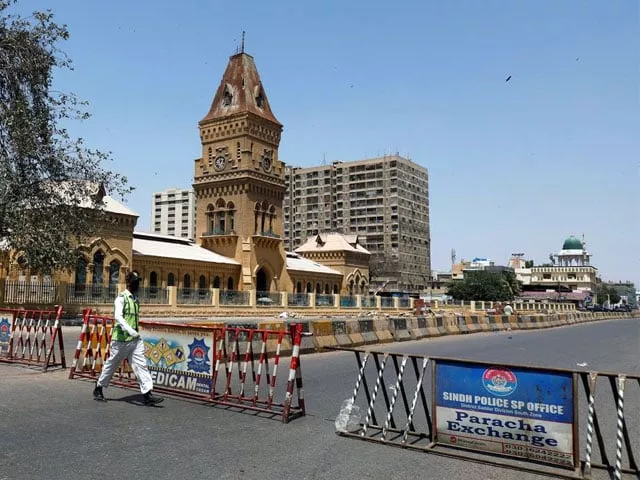How ozone walkthrough gates can help flatten the Covid-19 curve
They may be a better alternative to chlorine gates, which can be harmful for health
KARACHI: In a bid to play their role in flattening the corornavirus curve, engineers working for Saaf Pakistan Project [Clean Pakistan Project] - an organisation that provides technology solutions - have introduced ozone disinfectant walkthrough gates in the country.According to Ali Zia, who heads the organisation, this is the first time that these environment-friendly gates have been introduced in Pakistan. He said it was made possible after Talha Saleem, a graduate of the NED University of Engineering and Technology, prepared special generators for separating ozone from water - the principal mechanism used in the walkthrough gates.
Elaborating further, he said that at present, the walkthrough gates being used in the country used chlorine for the purpose of disinfection, which killed the virus but only at the cost of posing a threat to human health in other ways.
According to Zia, this drawback is the reason he and his team have introduced ozone disinfectant gates, which are not just more effective but costs less as well.
Saying that the mechanism of separating ozone from water for the purpose of disinfecting had been approved by the Drug Regulatory Authority of Pakistan, he explained that ozone was a naturally occurring substance which was internationally recognised for killing 99 per cent of infectants 30 times faster than other chemicals.
He said that the gates had ozone, which has high viscosity, stored in tanks after separated from water, adding that motion sensors installed in the gates stimulated automated spraying of ozone on anyone passing through. The duration of the spray could be adjusted through another sensor, Zia added.
"The mechanism was really effective in fighting CoV-1, which caused the severe acute respiratory syndrome, in 2003," he claimed.
According to Zia, the gates are suitable for being installed in public places such as shopping centres, conference rooms, auditoriums, offices, community centres and assembly halls.
"Saaf Pakistan Project has already prepared and installed five such gates at Karachi port's private terminal, shopping malls and mosques," he shared, adding that these didn't cost much as the generator used was made locally. "Each of these, now costing around Rs100,000, would have been as expensive as Rs300,000 had we imported the generators," Zia projected.
Gates having different ozone-storing capacities are available, according to Zia. "We have those that can store 30 litres and are also preparing gates with higher capacities up to 60 litres, 80 litres, 100 litres and even 3oo litres," he said, adding that each of them had five to ten nozzles to spray disinfectant on those passing through from head to toe.
Published in The Express Tribune, April 20th, 2020.


COMMENTS
Comments are moderated and generally will be posted if they are on-topic and not abusive.
For more information, please see our Comments FAQ